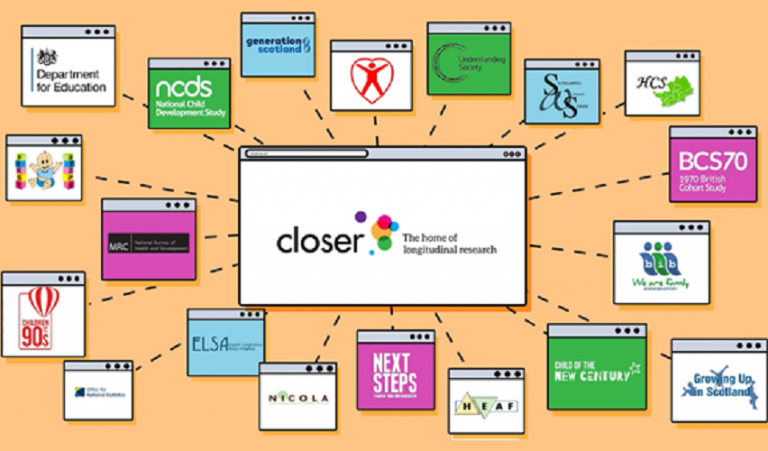New demo animations created for the CLOSER Learning Hub
10 March 2022
A new set of ‘Getting started’ animations have been launched on the CLOSER Learning Hub.

Based at the UCL Social Research Institute, part of IOE, UCL’s Faculty of Education and Society, CLOSER brings together different longitudinal studies to improve understanding of key social and biomedical challenges.
CLOSER’s Learning Hub is an online educational resource which helps those new to longitudinal studies, including students and policy makers, better understand their value and how their data can be used.
The ‘Getting started’ series aims to familiarise newcomers with the different areas of the Learning Hub. The series provides an accessible step-by-step guide to the learning modules, research case studies and other resources, and illustrates how these can benefit users’ own research.
The six bite-sized videos are:
- ‘Introduction to CLOSER and the partner studies’, which gives an overview of CLOSER’s work providing training resources for students and early career researchers.
- ‘What is the CLOSER Learning Hub?’, which introduces the Learning Hub, showcasing the learning modules, teaching datasets, research case studies and glossary.
- ‘Thinking about your research questions’, which demonstrates how data from longitudinal studies can be used to examine a range of research topics by exploring the Learning Hub’s collection of research case studies.
- ‘Thinking about the data you need’, which showcases the Learning Hub’s ‘Understanding metadata’ module and provides guidance on using CLOSER Discovery – the UK’s most detailed search engine for longitudinal studies – and data repositories to find the right variables for users’ research.
- ‘Thinking about ways of analysing data’, which introduces the ‘Analysing longitudinal data’ module and its beginner-friendly overview of the main techniques for analysing data from longitudinal studies, explaining why different research questions require different analysis techniques.
- ‘Thinking about communicating your research’, which addresses how best to communicate research findings and engage with different audiences by introducing the Learning Hub’s ‘Research communication’ module.
 Close
Close

